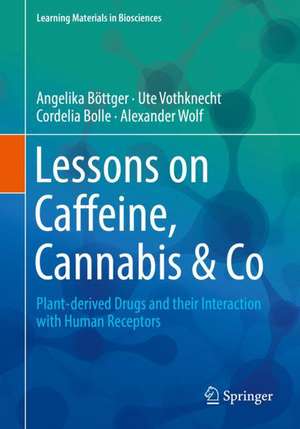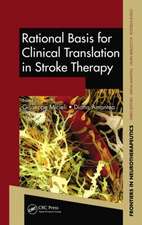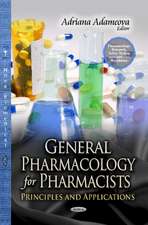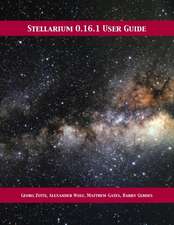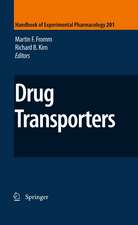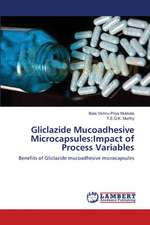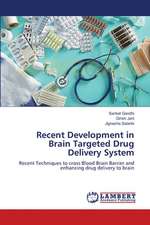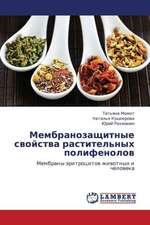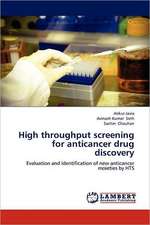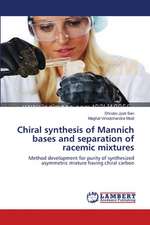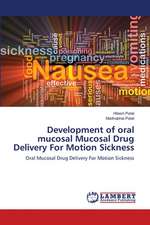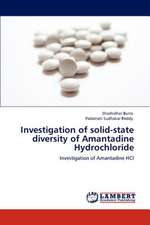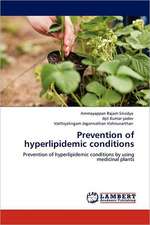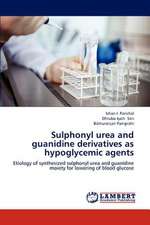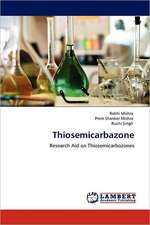Lessons on Caffeine, Cannabis & Co: Plant-derived Drugs and their Interaction with Human Receptors: Learning Materials in Biosciences
Autor Angelika Böttger, Ute Vothknecht, Cordelia Bolle, Alexander Wolfen Limba Engleză Paperback – 18 ian 2019
Din seria Learning Materials in Biosciences
- 17%
 Preț: 394.87 lei
Preț: 394.87 lei - 20%
 Preț: 506.67 lei
Preț: 506.67 lei - 5%
 Preț: 338.37 lei
Preț: 338.37 lei - 5%
 Preț: 330.24 lei
Preț: 330.24 lei - 5%
 Preț: 561.90 lei
Preț: 561.90 lei - 17%
 Preț: 426.67 lei
Preț: 426.67 lei - 17%
 Preț: 457.75 lei
Preț: 457.75 lei - 5%
 Preț: 491.25 lei
Preț: 491.25 lei - 17%
 Preț: 457.84 lei
Preț: 457.84 lei - 17%
 Preț: 490.60 lei
Preț: 490.60 lei -
 Preț: 358.42 lei
Preț: 358.42 lei - 17%
 Preț: 424.90 lei
Preț: 424.90 lei - 5%
 Preț: 414.82 lei
Preț: 414.82 lei - 17%
 Preț: 458.25 lei
Preț: 458.25 lei - 13%
 Preț: 383.66 lei
Preț: 383.66 lei - 5%
 Preț: 797.65 lei
Preț: 797.65 lei - 20%
 Preț: 345.73 lei
Preț: 345.73 lei - 5%
 Preț: 797.65 lei
Preț: 797.65 lei - 17%
 Preț: 428.12 lei
Preț: 428.12 lei - 5%
 Preț: 671.48 lei
Preț: 671.48 lei - 19%
 Preț: 397.76 lei
Preț: 397.76 lei -
 Preț: 339.79 lei
Preț: 339.79 lei - 15%
 Preț: 527.97 lei
Preț: 527.97 lei - 19%
 Preț: 477.45 lei
Preț: 477.45 lei - 5%
 Preț: 583.95 lei
Preț: 583.95 lei - 19%
 Preț: 436.50 lei
Preț: 436.50 lei - 5%
 Preț: 527.89 lei
Preț: 527.89 lei -
 Preț: 416.34 lei
Preț: 416.34 lei - 15%
 Preț: 494.85 lei
Preț: 494.85 lei - 15%
 Preț: 466.45 lei
Preț: 466.45 lei - 15%
 Preț: 494.85 lei
Preț: 494.85 lei - 5%
 Preț: 524.95 lei
Preț: 524.95 lei - 15%
 Preț: 533.72 lei
Preț: 533.72 lei - 15%
 Preț: 528.99 lei
Preț: 528.99 lei -
 Preț: 353.65 lei
Preț: 353.65 lei - 5%
 Preț: 595.01 lei
Preț: 595.01 lei - 15%
 Preț: 476.75 lei
Preț: 476.75 lei - 15%
 Preț: 527.48 lei
Preț: 527.48 lei
Preț: 529.76 lei
Preț vechi: 557.63 lei
-5% Nou
Puncte Express: 795
Preț estimativ în valută:
101.38€ • 105.20$ • 84.74£
101.38€ • 105.20$ • 84.74£
Carte disponibilă
Livrare economică 22 februarie-08 martie
Preluare comenzi: 021 569.72.76
Specificații
ISBN-13: 9783319995458
ISBN-10: 3319995456
Pagini: 190
Ilustrații: X, 217 p. 69 illus., 50 illus. in color. With online files/update.
Dimensiuni: 168 x 240 mm
Greutate: 0.5 kg
Ediția:1st ed. 2018
Editura: Springer International Publishing
Colecția Springer
Seria Learning Materials in Biosciences
Locul publicării:Cham, Switzerland
ISBN-10: 3319995456
Pagini: 190
Ilustrații: X, 217 p. 69 illus., 50 illus. in color. With online files/update.
Dimensiuni: 168 x 240 mm
Greutate: 0.5 kg
Ediția:1st ed. 2018
Editura: Springer International Publishing
Colecția Springer
Seria Learning Materials in Biosciences
Locul publicării:Cham, Switzerland
Cuprins
Introduction: Plant secondary metabolites and their general function in plants.- Historical and current perspective.- Medicinal use.- Recreational use.- General overview over biosynthesis pathways of plant secondary metabolites.- Drugs affecting GPCR: GPCRs in plants and animals.- Dopamine and 5-HT2A-serotonin receptors – Cocaine, mescaline, psilobin.- Opiate receptors – morphine, salvinorin A.- Cannabinoid receptors – THC.- Muscarinergic acetylcholin receptor - muscarin, atropine.- Adenosine receptor – caffeine.- Drugs affecting ion channels: Ligand and voltage activated channels.- Nicotinic acetylcholin receptor – Nicotine, Curare.- GABAA/C-receptor – Muscimol, thujone.- ionotropic Glycine receptor – Strychnine.- ionotropic Glutamate receptor - ibogtenic acid, kainic acid.- TRP channels – capsaicin, menthol, aconitine, resiniferatoxin.- Anti-cancer drugs acting on the cell cycle: Cell cycle in animals and plants.- Microtubuli - Colchicine, taxol, vinblastine, Podophyllotoxin (Lignan).- Topoisomerase - camptothecin, etoposide.- G2/M phase arrest, apoptosis – curcubitacin, triptolide.
Notă biografică
Prof. Dr. rer. nat Angelika Böttger is an Adjunct Professor at the Department of Cell Biology, Ludwig-Maximilians-Universität München. She is currently investigating signalling pathways of embryonic development and especially their role in regeneration of the freshwater polyp Hydra. Moreover, she is analysing the enzymes involved in oxygen sensing in animals. She teaches general cell biology and special courses on signal transduction.
Prof. Dr. rer. nat. Ute C. Vothknecht is Professor of Plant Cell Biology at the Institute for Cellular and Molecular Botany, Rheinische-Friedrich-Wilhelms-Universität Bonn. Her research focuses on calcium signaling involved in environmental stress response and plant development. Within this context, she especially investigates the function of plant organelles.
Dr. rer. nat. Cordelia Bolle is Scientist and Lecturer at the Department of Plant Molecular Biology/Botany, Ludwig-Maximilians-Universität München, Germany. Herresearch aims at elucidating the light-dependent signal transduction in plants especially phytochrome A signaling. She teaches general plant biochemistry and special courses on interactions of plants with their environment.Dr. Alexander Wolf (Ph.D.) is a Helmholtz Young Investigator Group Leader in the Institute of Molecular Toxicology & Pharmacology at the Helmholtz Zentrum München-German Research Center for Environmental Health. He is interested in the basic mechanisms of epigenetic regulation via modifications on proteins and nucleic acids, the overall patterns of which can vary due to external stimuli. A central topic of his research is how dysfunction of the epigenetic network can cause severe defects, like cancer.
Prof. Dr. rer. nat. Ute C. Vothknecht is Professor of Plant Cell Biology at the Institute for Cellular and Molecular Botany, Rheinische-Friedrich-Wilhelms-Universität Bonn. Her research focuses on calcium signaling involved in environmental stress response and plant development. Within this context, she especially investigates the function of plant organelles.
Dr. rer. nat. Cordelia Bolle is Scientist and Lecturer at the Department of Plant Molecular Biology/Botany, Ludwig-Maximilians-Universität München, Germany. Herresearch aims at elucidating the light-dependent signal transduction in plants especially phytochrome A signaling. She teaches general plant biochemistry and special courses on interactions of plants with their environment.Dr. Alexander Wolf (Ph.D.) is a Helmholtz Young Investigator Group Leader in the Institute of Molecular Toxicology & Pharmacology at the Helmholtz Zentrum München-German Research Center for Environmental Health. He is interested in the basic mechanisms of epigenetic regulation via modifications on proteins and nucleic acids, the overall patterns of which can vary due to external stimuli. A central topic of his research is how dysfunction of the epigenetic network can cause severe defects, like cancer.
Textul de pe ultima copertă
This textbook provides a structured, easy to understand and thorough insight into the mode of function of plant secondary metabolites in plants and humans. It explains the biosynthesis and molecular action of nicotine, cannabis, caffeine and Co, describes the effects of these drugs on signal transduction at receptors and ion channels in animals, their relevance for human health and their potential for recreational use and abuse. It also offers a broad and comprehensive understanding on the role and function of these diverse molecules for the plants that make them. This textbook is written for master students and scientist in biochemistry and biology as well as for pharmaceutical and medical students. It will be a valuable study tool for teachers and students alike.
Caracteristici
Provides structured overview on biosynthesis pathways Centered around specific exemplary drugs Broadens understanding of the molecular action in plants and the effect in humans Offers insight into the function of anti-cancer drugs Discusses prospective biotechnological use
